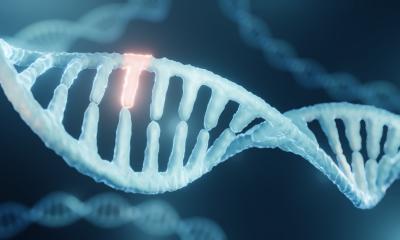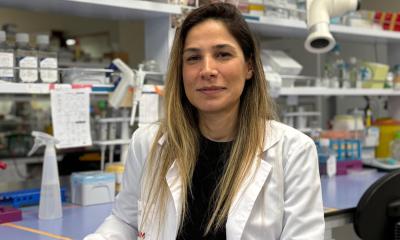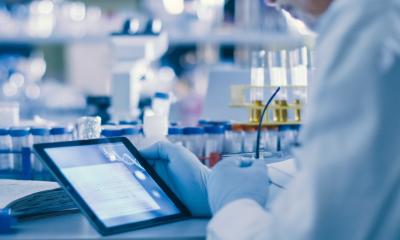News • 'CRyPTIC' research
Global tuberculosis study identifies genetic causes of drug resistance
Using cutting-edge genomic sequencing techniques, researchers at the University of Oxford have identified almost all the genomic variation that gives people resistance to 13 of the most common tuberculosis (TB) drug treatments.
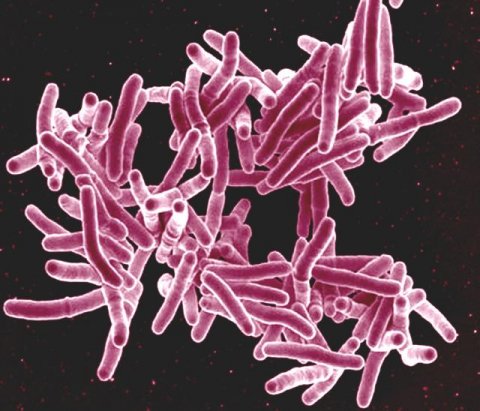
The Comprehensive Resistance Prediction for Tuberculosis International Consortium (CRyPTIC) research project has collected the largest ever global dataset of clinical M. tuberculosis samples from across the world consisting of 15,211 samples from 27 countries on five continents.
Using two key advances: a new quantitative test for drug resistance and a new approach which identifies all the genetic changes in a sample of drug-resistant TB bacteria the researchers have generated a unique dataset which the team has used to quantify how changes in the genetic code of M. tuberculosis reduce how well different drugs kill these bacteria that cause TB. These innovations, combined with ongoing work in the field, promise to profoundly improve how patients with TB are treated in the future.
Recommended article
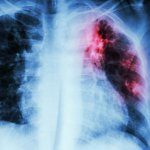
News • Epidemiology
Tuberculosis: A quarter of the world's population at risk
A new study from Aarhus University Hospital and Aarhus University has shown that probably 1 in 4 people in the world carry the tuberculosis bacterium in the body. The disease tuberculosis is caused by the bacterium Mycobacterium Tuberculosis, which affects more than 10 million people every year, and kills up to 2 million, making it the most deadly of the infectious diseases.
Tuberculosis kills more people each year than any other bacterium, virus, or parasite, except for SARS-CoV-2. Although it is treatable, drug resistance has emerged as a major problem over the past 3 decades. Testing for mutations in the M. tuberculosis genome to determine which drugs will give a patient the best chance of cure is the most realistic way of getting drug resistance testing to every patient who needs it. “This innovative, large-scale, international collaboration has enabled us to create possibly the most comprehensive map yet of the genetic changes responsible for drug resistance in tuberculosis.” said Dr. Derrick Crook, Professor of Microbiology at the University of Oxford.
In a series of nine new preprint manuscripts, each documenting a different aspect of how the CRyPTIC project has advanced the field, the researchers reveal:
- How the new drug resistance tests should be interpreted1 and how a massive citizen science project helped solve this problem2
- How a new approach to detecting and describing genetic changes in the whole TB genome sequence improved the way genetic changes driving drug resistance can be detected3
- How these data were used to scan the TB genome sequence for changes not previously known to cause drug resistance4
- How individual mutations, and combinations of mutations, can be related not just to blunt measures of ‘resistance’ or ‘susceptibility’, but also to even minor changes in the way a drug kills M. tuberculosis, thereby reducing the effectiveness of treatment5 with special attention being paid to two novel compounds being used to treat tuberculosis6.
- How artificial intelligence can predict drug resistance from signatures in the DNA sequence7
- How these data8 contributed to the first list of drug resistance mutations in the TB genome to be endorsed for global use by the World Health Organization9
This will enable rapid-turnaround near-to-patient assays to revolutionise MDR-TB identification and management
Derrick Crook
These results aim to help improve control of tuberculosis and facilitate the World Health Organisation’s end TB strategy through better, faster and more targeted treatment of drug-resistant tuberculosis via genetic resistance prediction, paving the way towards universal drug susceptibility testing (DST). ‘Our ultimate goal’ Professor Crook continues, ‘is to achieve a sufficiently accurate genetic prediction of resistance to most anti-tuberculosis drugs, so that whole genome sequencing can replace culture-based DST for TB. This will enable rapid-turnaround near-to-patient assays to revolutionise MDR-TB identification and management.’
The data, which are now freely available, can be used by the wider scientific community to improve our understanding of drug resistance in TB and how to best treat this important disease.
Manuscripts:
- Epidemiological cutoff values for a 96-well broth microdilution plate for high-throughput research antibiotic susceptibility testing of M. tuberculosis. The CRyPTIC Consortium (2021) medRxiv preprint.
- BashTheBug: a crowd of volunteers reproducibly and accurately measure the minimum inhibitory concentrations of 13 antitubercular drugs from photographs of 96-well broth microdilution plates. Fowler PW et al. (2021) biorXiv preprint.
- Minos: variant adjudication and joint genotyping of cohorts of bacterial genomes. Hunt M et al. (2021). bioRxiv preprint.
- Genome-wide association studies of global Mycobacterium tuberculosis resistance to thirteen antimicrobials in 10,228 genomes. The CRyPTIC Consortium (2021). bioRxiv preprint.
- Quantitative measurement of antibiotic resistance in M. tuberculosis reveals genetic determinants of resistance and susceptibility in a target gene approach. The CRyPTIC Consortium (2021). bioRxiv preprint.
- Deciphering Bedaquiline and Clofazimine Resistance in Tuberculosis: An Evolutionary Medicine Approach. Sonnenkalb L et al. (2021) biorXiv preprint.
- A generalisable approach to drug susceptibility prediction for M. tuberculosis using machine learning and whole-genome sequencing. The CRyPTIC Consortium (2021). bioRxiv preprint.
- A data compendium of Mycobacterium tuberculosis antibiotic resistance. The CRyPTIC Consortium (2021) bioRxiv preprint.
- The 2021 WHO catalogue of M. tuberculosis complex mutations associated with drug resistance: A new global standard for molecular diagnostics. Walker et al. (2021) Lancet preprint.
Source: University of Oxford
19.10.2021



